Helpdesk Representatives (Reps)
The HelpDesk is managed by a team of volunteers with expertise and experience in a range of bioinformatics and genomics skills. Volunteers were recruited from the the 34 H3ABioNet nodes. You can read more about each Rep below.
Ayton Meintjes
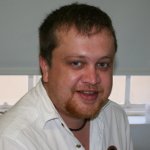
Software Developer: Ayton Meintjes is a Bioinformatics software engineer at CBIO. He completed a BSc in Computer Science at the University of Pretoria, and after a period of development in the commercial field, returned to do a BSc (Hons) with specialisation in Bioinformatics. In 2008, he joined the CBIO Group at UCT and has collaborated on projects mostly focusing on human population genetics and genome wide association studies. He is currently part of the H3ABioNet Central Node, taking active part in the Infrastructure, Research, Node Assessment and User Support groups. His current research interests are in visualisation of complex biological datasets, workflow integration and computational challenges posed by the large databases produced by modern sequencing technologies.
Areas of expertise
Analysis - Genotyping Arrays, Analysis - NGS Data, exome human, Analysis - Other (phylogenetics, data mining, bioinformatics resources, genome databases etc), Data Management / Storage, Technical Systems Administration, Website / Mailing List
Dr Benard Kulohoma
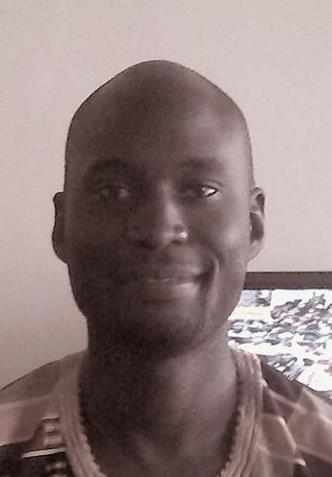
Bioinformatician: A bioinformatician with a wide range of research interests that include: bioinformatics, functional genomics, population genetics, infectious diseases, molecular biology and immunology. His primary research goals are directed towards development and use of analysis pipelines, and genome sequence analysis tools to explore large-scale sequence data, especially in resource poor-settings.
Areas of expertise
Analysis - Genotyping Arrays, Analysis - NGS Data - metagenomics, Analysis - Other (phylogenetics, data mining, bioinformatics resources, genome databases etc)
Dr Bouabid Badaoui
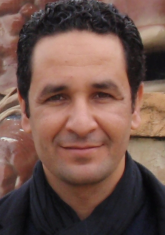
Researcher: Dr Badaoui has an undergraduate degree in Engineering, an MSc in Animal Genetics and a PhD in Functional Genomics. He is a specialist in animal genetics and genomics and his research focuses mainly on the phenotype-genotype interaction in different areas of animal biology: coat colour, milk composition, demographic change, thermal stress as well as bacterial and viral infections. His PhD thesis was part of a Marie Curie Actions supported project; RIVAGE - Regulation and Variability of Animal Genome Expression (http://w3.jouy.inra.fr/rivage/uk/). Dr Badaoui was a Post Doctoral Research Fellow at at the "Universitat Autonoma de Barcelona" and he researched the genetics of coat colour inheritance in goats. He is also competent in bioinformatics/statistics, quantitative genetics and computational biology. Since November 2013 Dr Badaoui has been actively involved in creating a bioinformatics research and service platform at FUS.
Areas of Expertise
Analysis - Genotyping Arrays, Analysis - NGS Data, exome human, Analysis - NGS Data - metagenomics, Analysis - Other (phylogenetics, data mining, bioinformatics resources, genome databases etc), Biostatistics
Dr Emile Chimusa

Biostatistician: Emile received his BSc in Applied Mathematics from the University of Kinshasa. He later joined the independent electoral commission (IEC) for the United Nations mission in Democratic Republic of Congo (DRC) as a software developer/database administrator. He obtained his post-graduate diploma in Mathematical Sciences at the University of Western Cape, South Africa. He completed his PhD from the University of Cape Town, South Africa in Bioinformatics and Computational Biology. During his PhD Emile spent time at the Harvard School for Public Health working with his co-supervisor and he developed a number of new statistical approaches for analysing multi-way admixed populations and for studying the genetic basis of complex diseases. During his last year of PhD Emile joined the African institute for Mathematical Sciences as an IT officer and teaching assistant. He is currently the Biostatistician at the CPGR. Emile’s research interests are in computational and statistical methods for understanding both the genetics and environment architecture of genetic diseases. He investigates methodologies for improving the analysis of large scale genomic studies such as genome-wide association studies or fine-mapping studies.
Areas of Expertise
Analysis - Genotyping Arrays, Analysis - NGS Data, exome human, Analysis - NGS Data - metagenomics, Analysis - Other (phylogenetics, data mining, bioinformatics resources, genome databases etc), Biostatistics, Data Management / Storage
Dr Chris Fields
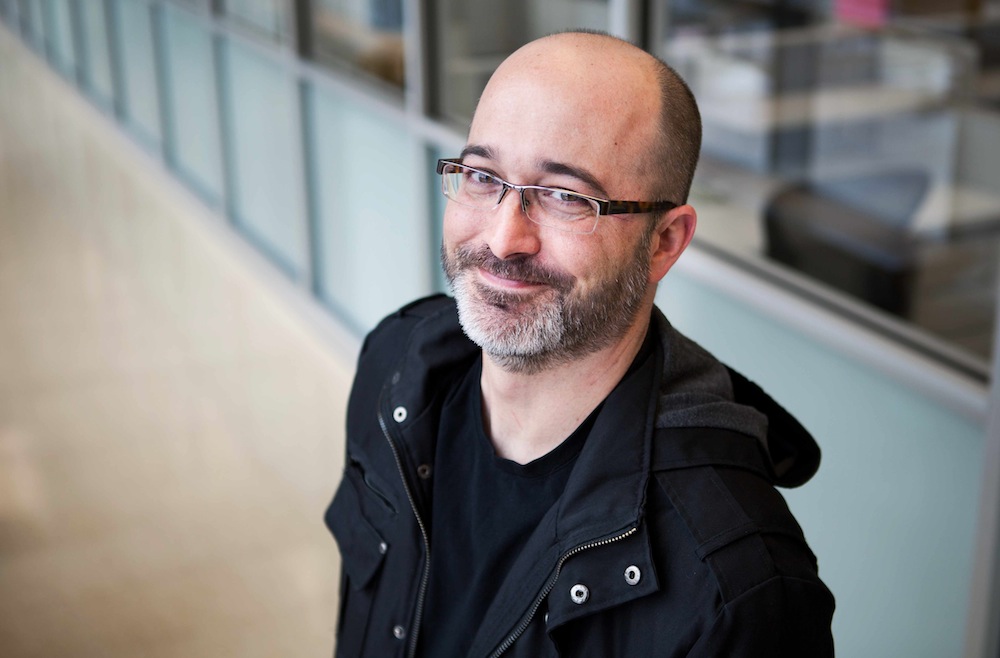
Technical Lead in Genome Informatics: Christopher's focus is architecting and developing infrastructure within the HPCBio group for genomic analyses; this includes implementations of web-based tools such as GBrowse,and Galaxy and high-throughput analysis pipelines for whole genome annotation such as MAKER and Interproscan, and custom solutions based on a project’s particular needs. He coordinates with the IGB Computer Network Resource Groups and the Galaxy project on code optimizations for server-side scalability and cluster job submission, with the final end-goal being a working Galaxy instance at the University of Illinois.
He is also a core developer for the BioPerl project, and an active contributor to the Generic Genome Browser (GBrowse). Furthermore, he is actively collaborating to various open-source projects, specifically projects from the Open Bioinformatics Foundation (such as Biopython, BioRuby, BioJava, and EMBOSS), and resources in the Generic Model Organism Database (GMOD) consortium of projects. He is currently a member of the board of the Open Bioinformatics Foundation (OBF). He earned his undergraduate degree in biology from Baylor University, followed by his PhD in molecular microbiology from the University of North Texas in 2002, the latter primarily in a wet-lab research environment. However, he has always had a strong interest in computational biology, and over the course of his second postdoctoral appointment decided that he wanted to focus completely on computational biology, joining the Institute for Genomic Biology as an IGB Postdoctoral Fellow. As previously alluded to, he also became one of the lead developers of the BioPerl open-source bioinformatics toolkit during his post-graduate research, in 2007. Christopher's experience and background as a BioPerl core developer has led to a number of diverse collaborations over the last several years, including work that led to the standardization for the ubiquitous FASTQ format. His role as a BioPerl developer has also led to mentoring opportunities in the Google Summer of Code for NESCent and four more with the Open Bioinformatics Foundation.
Areas of Expertise
Analysis - NGS Data, exome human, Analysis - NGS Data - metagenomics, Analysis - Other (phylogenetics, data mining, bioinformatics resources, genome databases etc)
David Brown
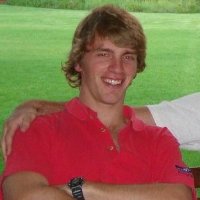
Full time software developer/MSc Student: David did his undergraduate degree at Rhodes University, majoring in Computer Science and Information Systems. He then went on to do a joint Honours degree in Computer Science and Information Systems. David joined RUBi in 2013 as a software developer. He is also studying towards his MSc degree in Bioinformatics. His research interests include database development, web development, human genetic variation, and structural bioinformatics.
Areas of Expertise
Technical Systems Administration
Gerrit Botha

Software Developer: Gerrit Botha is a Bioinformatics engineer at CBIO. He received his bachelors degree in Computer Engineering from the University of Pretoria in 2004. From 2006 to 2008 he was part of the of the Human Language Technologies group at the Meraka Insititute (CSIR) where his research focused on natural language processing, speech synthesis and text-based language identification. In 2008 he completed his masters degree in Electronic Engineering and joined the Computational Biology group the same year. He is responsible for providing bioinformatics support and works on a variety of projects such as functional annotation pipelines, whole-genome and exome sequencing analysis and bacterial diversity studies.
Areas of Expertise
Analysis - NGS Data, exome human, Analysis - NGS Data - metagenomics, Technical Systems Administration, Website / Mailing List
Dr Jean-Baka Domelevo Entfellner
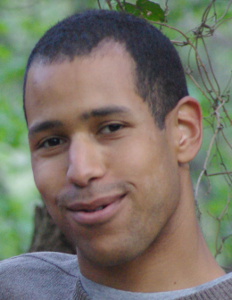
Postdoctoral Fellow: After studying computer science, mathematics and signal processing at the École Normale Supérieure de Cachan (Rennes, France), Jean-Baka graduated with an MSc in computer science in 2006. He then traveled on a one-year sabbatical in 2006-2007 to lecture in Niamey, Niger and Yaouné, Cameroon, in a project aimed at developing capacity in mathematics and computer science higher education and research in Africa. Back in France, he started my PhD in Montpellier (at LIRMM, a CNRS lab) under the supervision of Prof Olivier Gascuel, in the field of phylogenetics and statistical modeling. Jean-Baka defended his PhD thesis in December 2011, which is titled "Combination of phylogenetic and sequential models to analyze biological sequences: reconstructing ancestral profile HMMs." He is currently a postdoctoral fellow at SANBI, in the research group led by Dr Nicki Tiffin. Within the H3ABioNet project, Jean-baka's primary objective for the H3ABioNet project is to develop and make use of a new tool to assess capacity in bioinformatics in Africa and to report about the effectiveness of the H3ABioNet project, in terms of capacity building.
Areas of Expertise
Analysis - Genotyping Arrays, Analysis - Other (phylogenetics, data mining, bioinformatics resources, genome databases etc), Biostatistics, Data Management / Storage, Technical Systems Administration, GNU/Linux stuff, R statistical software
Dr Jenny Drnevich
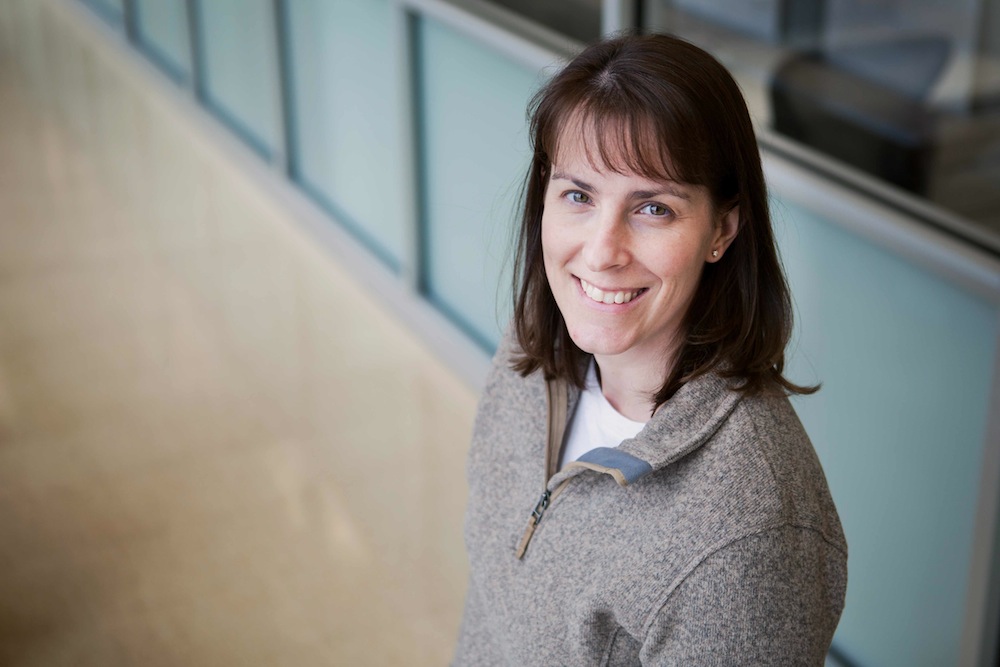
Functional Genomics Bioinformatics Specialist: Jenny's areas of expertise are statistical analyses of gene expression data from microarrays and RNA-Seq and post-analysis data mining. Jenny received a Bachelor's degree in 1996 from Purdue University in Ecology, Evolution and Population Biology and then a PhD in 2001 from Arizona State University studying Evolution and Behavioral Ecology in insects. During her undergraduate and graduate studies, she did field work in Australia, Venezuela, Costa Rica, Panama and Thailand, and also spent a semester at the University of Sheffield, England in the lab of Dr. Mike Siva-Jothy. Jenny then switched her research focus to quantitative genetics and genomics, moving to the University of Illinois in 2001 to do post doctoral work in the lab of Dr. Kimberly Hughes, studying mating success and longevity in Drosophila melanogaster. She started her first microarray experiment in 2002 and was the first user of the Affymetrix microarray system at the Carver Biotechnology Center at the University of Illinois. In 2005 she joined the Carver Biotechnology Center's Bioinformatics Unit in her present job title to provide microarray analysis services to researchers at the University and elsewhere. In 2012, the Bioinformatics Unit joined with groups from the Institute for Genomic Biology and the National Center for Supercomputing Applications to form the HPCBio group, and her services expanded to include RNA-Seq data. To date, she has analyzed over 200 expression experiments from over 60 research groups in the United States and Mexico. She also teaches a recurring workshop on how to analyze and data mine gene expression data.
Areas of Expertise
Analysis - Other (phylogenetics, data mining, bioinformatics resources, genome databases etc), Biostatistics
Patrick Musicha

PhD Student: Patrick graduated with a Bachelor of Education Science (Mathematics) from the University of Malawi-Chancellor College. Immediately after completing his undergraduate studies he enrolled into an MSc in the Information theory, Coding and Cryptography Programme at Mzuzu University (Malawi). For his MSc, he studied efficient implementation of cryptographic algorithms and protocols and built Multi-Precision Cryptographic Library (MCL), a C++ library which efficiently implements most common cryptographic and number theoretic protocols and algorithms using arbitrary size integers. Patrick worked with the Catholic University of Malawi as a lecturer in Mathematics and Statistics and has been a member of the Southern Africa Mathematical Sciences Association (SAMSA) since 2009. Patrick’s fascination with computational mathematics aroused his interest in bioinformatics. It is this interest that motivated him to apply for the H3ABionet PhD Scholarship, which he was offered in July 2013. He started his PhD studies in November 2013 and is working on “Characterisation of invasive and multiple antibiotic resistant enteric bacteria from Malawian children and adults” under the supervision of Dr Chisomo Msefula (University of Malawi), Dr Dean Everett (University of Malawi), Prof Robert Heyderman (University of Liverpool) and Professor Moffat Nyrienda (College of Medicine).
Dr Radhika Khetani
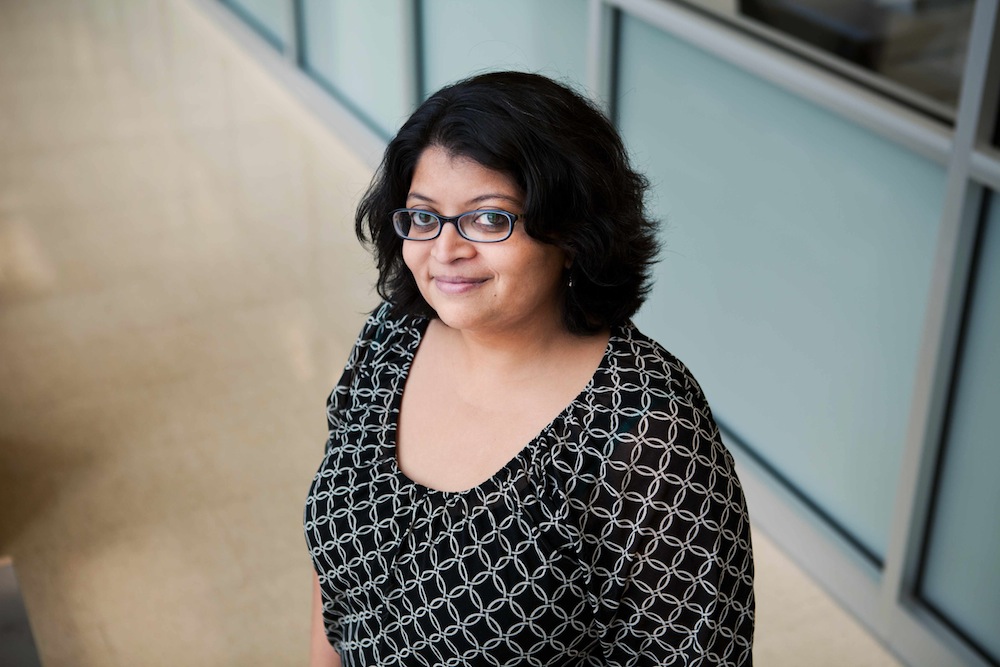
Technical Lead for User Support and Training: Radhika received her PhD from Dartmouth College in New Hampshire and she was a post-doctoral fellow at Dartmouth, and at the University of Illinois in Urbana-Champaign. She has worked in multiple areas of biology. She received her bachelor’s degree in Life Sciences (at St. Xavier’s College), with a specialization in Biotechnology, followed by a master’s degree in Biotechnology, both from the University of Bombay. As a graduate student and then as a post-doctoral researcher at Dartmouth College, she trained as a molecular biologist and geneticist, studying the process of chromosome segregation in Drosophila melanogaster. In 2009 she joined Dr. Matthew Hudson’s group, at the University of Illinois, as a post-doctoral researcher, to study the impact of stress factors on the health of honey bees. This was primarily a genomics-based endeavor and she focused on next-generation sequencing data analysis to study changes in brain gene expression and in gut microflora in response to stress (transcriptomic and metatranscriptomic analyses) in honey bees. She joined HPCBio in July 2012. She is currently involved in a diverse set of customer projects, and is in charge of organizing and teaching workshops for biologists looking to perform bioinformatics analyses on their own.
Areas of Expertise
Analysis - NGS Data, exome human, Analysis - NGS Data - metagenomics, Analysis - Other (phylogenetics, data mining, bioinformatics resources, genome databases etc)
Dr Shaun Aron

Consultant/Trainer: Shaun Aron is currently a lecturer and consultant at the University of the Witwatersrand (WITS) in Johannesburg, South Africa. His undergraduate training is in the area of human genetics and molecular biology, however, he has been working in the field of bioinformatics since the start of his MSc degree in 2007. He is currently involved in various bioinformatics teaching, training and consulting activities within the university and H3ABioNet. His current research interests are in the analysis of genome-wide genetic data to better understand complex disorders and explore population diversity and histories. In addition to this, he has extensive experience in using some of the major online bioinformatics resources and databases, as well as utilising some of the major web services developed to aid biologist in running some of the more simple bioinformatics analyses. He also recently developed experience in the analysis of genotyping array data together with the team at Wits Bioinformatics.
Areas of Expertise
Analysis - Genotyping Arrays, Analysis - Other (phylogenetics, data mining, bioinformatics resources, genome databases etc), Teaching and training
Dr Sumir Panji

H3ABioNet Project Manager: Sumir obtained his PhD in Bioinformatics from the University of the Western Cape as part of the Stanford South Africa Biomedical Informatics (SSABMI) programme where he developed computational and analyses pipelines to determine the intersection between bacterial virulence and positive selection in Professor Winston Hide's laboratory. He completed his postdoctoral studies in Professor Alan Christoffels' laboratory at the South African National Bioinformatics Institute (SANBI) where his focus was on genome assembly, annotation, data mining, large scale statistical analysis of genomics data and development of various computational pipelines and analyses workflows for a myriad of genomics' data types. Dr Panji's main interests are in creating and implementing computational and analyses workflows, statistical analysis of biomedical data, biological algorithms, high performance computing and the overall application of bioinformatics and genomics methods to better understand complex biological systems. Sumir is currently a bioinformatician within the H3ABioNet consortium who is interested in genome science, data analysis workflows, statistical analyses of large 'omics datasets, implementation and interpretation of bioinformatics solutions to diverse biological problems and providing bioinformatics support to the H3Africa projects.
Areas of Expertise
Bioinformatics, genomics, biostatistics, computational pipelines, project management, website (H3ABioNet only), administration (H3ABioNet only)
Suresh Maslamoney

System Administrator: Suresh Maslamoney is a techie at heart and has experience in system and network administration as well as in designing and developing ICT infrastructure. Suresh joined CBIO in February 2013 as a systems administrator and is tasked with developing and providing support on the core computational infrastructure for the CBIO and the H3ABioNet consortium. Prior to joining CBIO, Suresh spent 3 years in the UK working in various ICT posts before returning to RSA where he joined the South African Tuberculosis Vaccine Initiative (SATVI). At SATVI Suresh was responsible for managing the IT section and all ICT related technical matters.
Areas of expertise
Technical System Administration
Mamana Mbiyavanga

Bioinformatics Software Developer: After completing his bachelor’s degree in computer science and mathematics in 2009, Mamana worked for several years as a software developer and IT administrator before completing a postgraduate diploma in mathematics in 2012, at the African Institute for Mathematical Sciences (AIMS), in South Africa. During this period Mamana found his passion in bioinformatics, which he continued to develop in his Master’s degree at the University of Cape Town. He is interested in exploring future technologies and interdisciplinary computational problems to enhance his knowledge and skills in bioinformatics, genetic epidemiology, machine learning, big data and web-services. In 2014, he joined the CPGR H3ABioNet group, part of H3A initiative (http://h3africa.org), as the Bioinformatics Software Developer.
Areas of expertise
Analysis - Genotyping Arrays, Analysis - Other (phylogenetics, data mining, bioinformatics resources, genome databases etc), Biostatistics, Data Management / Storage
Raphael Sangeda
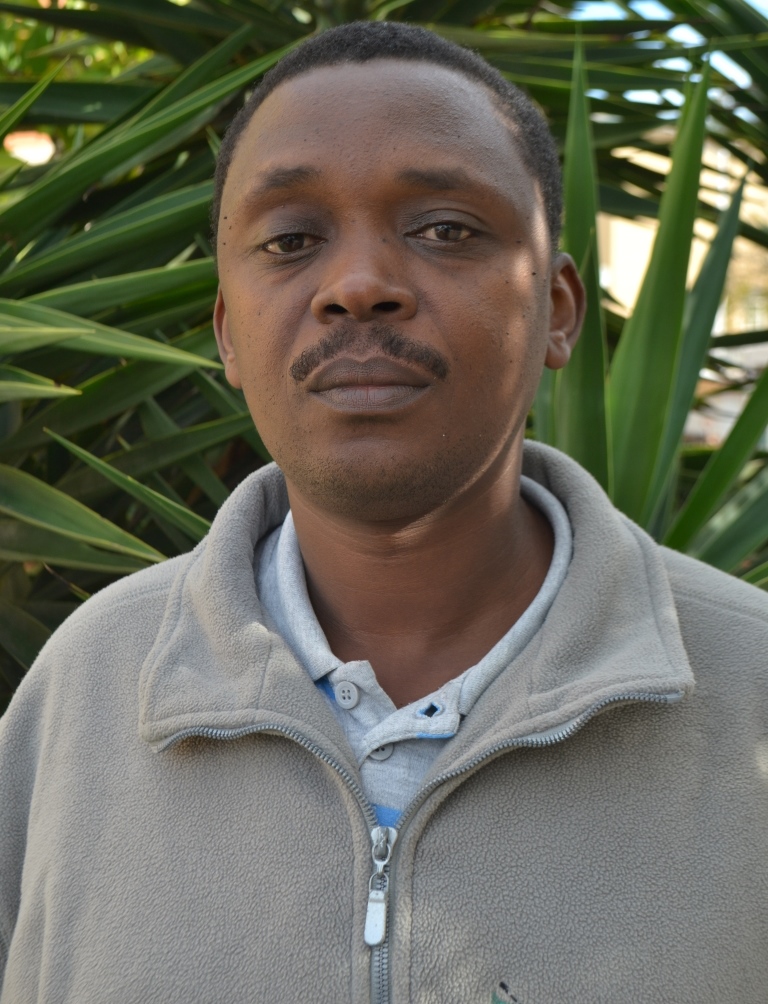
Bioinformatician: Raphael is a lecturer in the department of Pharmaceutical Microbiology at the MUHAS node. Raphael graduated with a B. Pharm from Dr MGR Medical University, Chennai, India in 1998. In 2005, he obtained his MSc in Medical Microbiology at Jomo Kenyata University of Agriculture and Technology. In 2005 he joined Katholieke Universiteit Leuven, now KU Leuven, in Belgium where he graduated in M. Pharm (2006), Msc. Bioinformatics (2008) and PhD (2013) on the use of Bioinformatics approaches to predict HIV drug resistance. His interest at includes the use of Genome wide association studies (GWAS) in investigating the ‘Genetic epidemiology of Human Immunodeficiency Virus, Hepatitis B virus and Hepatitis C virus infections in individuals with Sickle Cell Disease’.
Areas of expertise
Analysis - Other (phylogenetics, data mining, bioinformatics resources, genome databases etc)
Bruno Mmbando
Biostatistian: BSc. (Maths and Stats) from University of Dar es Salaam, Tanzania (1999)
MSc. Medical Statistics, Lancaster University, UK (2003)
PhD Health Sciences (by then Department of Biostatistics), Copenhagen University, Denmark (2011). Research topic: “Spatial variation and risk factors associated with malaria in north-eastern Tanzania.
Have attended several tailored short causes including Train the Trainer Bioinformatics at ICIPE (8-26 June 2013)
Employment: Data manager at Ifakara health institute, Tanzania, between Feb and May, 2000.
Research Scientist (Statistics) from June 2000 to date at the National Institute for Medical Research, Tanzania
August 2012 to date: Statistician at Muhimbili Wellcome Programme (part time)
Work experience: Experience in clinical study design, field data collection, data management, statistical analysis and writing. He also served as a statistical fellow for phase III RTS,S malaria vaccine trial.
Area of Interest: Medical statistics, Epidemiology and clinical trials. Diseases of interests are malaria, HIV and sickle cell
Teaching: Statistics using R at the Kilimanjaro Christian Medical University College in Tanzania (Since 2002), and several short courses in statistics.
Publications: Co-authored over 25 publications in peer reviewed Journals
Areas of expertise
Biostatistics
Anmol Kiran
Bioinformatician: Anmol is an experienced Linux user. For most of his data analyses, he uses python and R scripting languages and is familiar with C++, Google Go, Shell and Sage-math. He is also administrating a number of Linux servers and web-sites based on Apache web-server. He is experienced in using MySQL, PostgreSQL and SQLite. He has developed some websites using python based web frame works -- Django and Web2Py which helped him learn HTML, XML, CSS and JavaScript. He has done analysis of hgh-throughput sequencing data associated to genome, transcriptome and ribosome profiling from various organisms. For his research, he has used a wide range of bioinformatics tools depending on the need of the analysis and the data. He is also an exprienced LaTeX user.
Areas of expertise
Analysis - NGS Data, exome human, Analysis - NGS Data - metagenomics, Analysis - Other (phylogenetics, data mining, bioinformatics resources, genome databases etc), Biostatistics, Technical Systems Administration, Website / Mailing List




